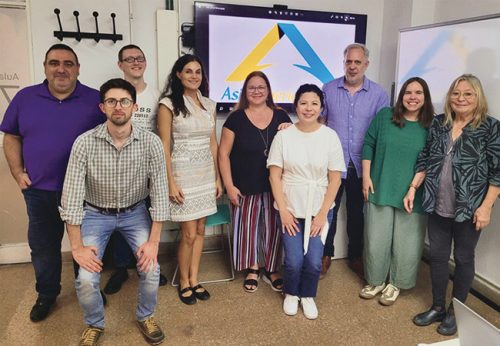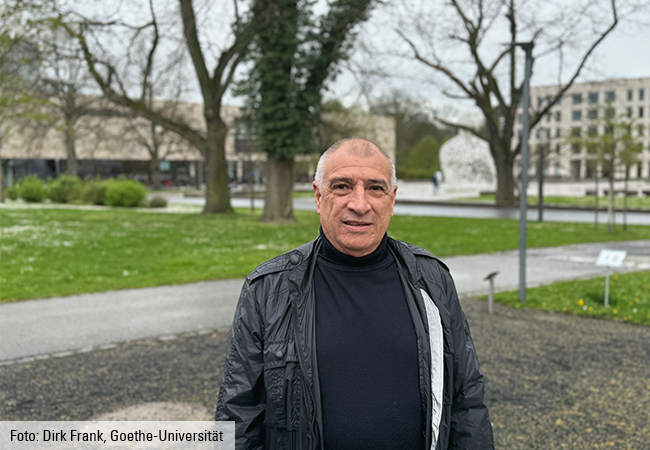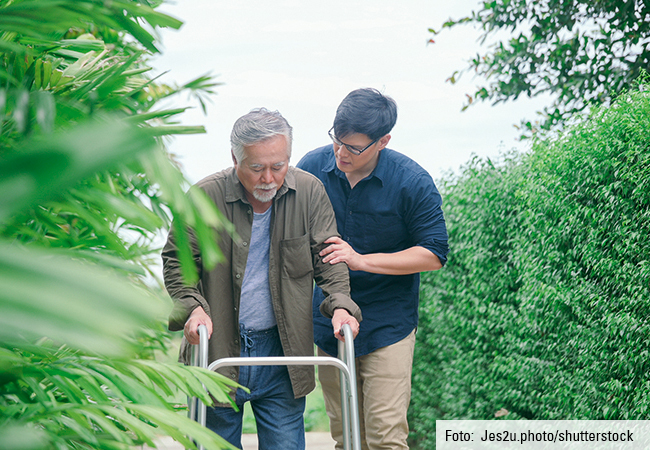Report on Argentinian-German conference in Buenos Aires

Nowadays many socio-political innovations appear in Asia first and then spread to Latin America. Despite their differences, these two regions in the global South often exhibit similar political and social dynamics. Despite that, the sheer geographical distance, priorities and a lack of research funding make it difficult to study Asia in Latin America. That is why, in November 2023, political scientists Dr. Kerstin Duell from Goethe University Frankfurt and Prof. Fernando Pedrosa from Universidad de Buenos Aires organized a conference with funding from the Fritz Thyssen Foundation. It was hosted in Buenos Aires by the Grupo de Estudios sobre Asia y América Latina (GESAAL), the largest group for Asian studies in Argentina and one of the most highly regarded in Latin America.
In cooperation with Spanish researcher Dr. Daniel Gomà and Dr. Duell, eleven scientists from Latin America analyzed the increase in autocratic discourses and power in the two regions and their impacts on Europe. The participants discussed issues connected with autocratic processes, including the influence of the superpower strategies of China, the US and Russia, as well as other important topics that have yet to be receive full consideration in studies on regime changes and autocracy – such as extractivism and the consolidation of religions during regimes change. Some conference attendees also stressed the roles of endemic political violence and human rights violations in the interplay between repression, mobilization and demobilization.
In the present era, often called the “Asian age”, the various authoritarian currents in Asia are a particular cause for concern. On the other hand, led by Generation Z, very many people across Asia are currently mobilizing against both old and new dictators, and – increasingly explicitly – against the support these autocrats receive from China. This is very evident in protest movements like those in Hong Kong and Thailand, as well as the widespread popular resistance in Myanmar to the inhuman military dictatorship. The latest annual survey of the Institute of Southeast Asian Studies (ISEAS, a renowned Singapore thinktank) also clearly reflects the worries of many Southeast Asians about Beijing’s growing influence in their own countries. It is in this global context that some Latin American countries are seeking strategies to reduce or break free of dependencies that have arisen from their relations with Chinese state companies. At the same time, Asia’s global importance (not restricted to China) has to be subject to scientific analysis to produce a better understanding of it. The Consejo Argentino para las Relaciones Internacionales (CARI), an Argentinian thinktank for international relations, organized a separate lecture by Dr. Duell on this topic, in which she presented southeast Asian strategies concerning China. She was already invited by several research institutions in Argentina and Chile to give lectures on topics relating to Asia in 2021/2022.
Dr. Kerstin Duell lived in southeast Asia and India for over 20 years, gained her doctorate in Singapore, and has conducted research in the region into transnational activism and the political diaspora. In development policy she works on personal security at flashpoints in authoritarian systems, primarily on topics concerning human rights, migration, gender studies and transnationally organized crime. While doing this, she learned first-hand how to protect both oneself as a researcher and one’s interview and project partners in situations characterized by surveillance and repression – whether in border areas or among refugees or political exiles. In 2022 Duell joined the team at Goethe University Frankfurt’s Department of Tropical Medicine and Global Health, part of the Institute of Occupational, Social and Environmental Medicine, to work in interdisciplinary scientific peace and conflict studies.













